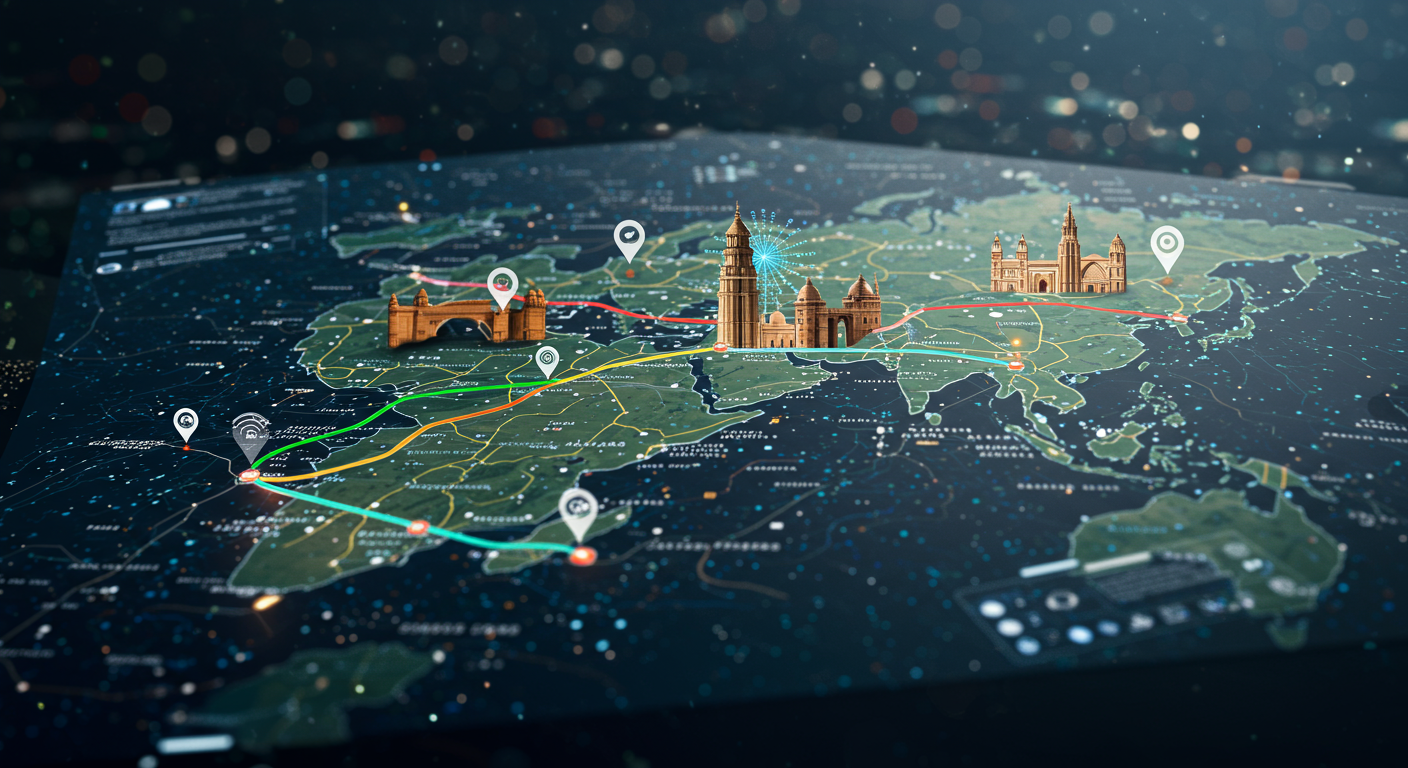
The news of Google Maps integrating its first AI-powered features for India caught my attention immediately. It’s a compelling step that echoes many of the reflections I've shared over the years about the profound impact of artificial intelligence on our daily lives.
I’ve always seen AI as more than just a tool; it's a transformative force reshaping how we interact with information and our environment. This new development in Google Maps, leveraging Gemini, signifies a broader trend I've been discussing—the move towards more intuitive, context-driven understanding within user interfaces. I touched upon this extensively in my blog, "A Map to Everywhere and Every Thing?" where I emphasized the significance of moving beyond mere keyword matching to a more interactive, intelligent information retrieval system.
My earlier blog, "AI Is 70, I Am 90", highlighted the evolution of AI in enhancing user interfaces. Google's continued emphasis on context-driven understanding through Large Language Models (LLMs) in mapping applications is a clear validation of this perspective. Yet, we must also acknowledge the criticisms Google faced regarding inaccuracies, biased responses, and irrelevant content, as noted in the article "Google Brings AI Answers to Map Applications" (https://cio.economictimes.indiatimes.com/news/artificial-intelligence/google-brings-ai-answers-to-map-applications/114836175). This underscores the ethical imperative in AI development, a concern I voiced in "Now Assurance, Next Obligation" regarding the continuous quest for accurate search results and the need to combat misinformation.
India's Pivotal Role in AI Adoption
The focus on India for these new AI-powered features is particularly noteworthy. India's rapid adoption of technology, especially AI, has been a recurring theme in my observations. Kyle Daigle, COO of GitHub, recently remarked that India is adding one million developers every three months, with an eagerness to adopt AI tools quickly, as highlighted in "How about this innovation?" This sentiment resonates deeply with the vision of leaders like Mukesh Ambani, who, as reported in "Reliance Jio-Microsoft partnership to shape digital decade: Ambani", envisioned a digitally enabled India where even micro enterprises could leverage technological advancements. The potential for AI in mapping to revolutionize local commerce, tourism, and daily life in India is immense.
The Ethical Compass and Future Path
The integration of AI into such pervasive applications like Google Maps also brings into sharp focus the ethical considerations that industry leaders have been grappling with. I recall the "Sense of urgency', as top tech players seek AI ethical rules" article from 2019, which quoted Microsoft's president highlighting the need for global ethical standards. This call has only grown stronger, with figures like EU tech regulation chief Margrethe Vestager and even Elon Musk advocating for risk-based regulation, as discussed in my blog "Law of Chatbot (a small subset of EU Law of AI)".
Indeed, AI pioneer Geoffrey Hinton's warnings about the dangers of uncontrolled AI, and the need for global collaboration among scientists to control the technology, resonate with my long-standing concerns. In 2016, I wrote "Revenge of AI", where I predicted the profound societal changes AI would bring, emphasizing the need to keep AI devoid of






No comments:
Post a Comment